When ballerina Alice Renavand hand-picked Australia in Pool C at December’s 2023 Rugby World Cup draw in Paris, Dave Rennie appeared to nod and breathe a sigh of relief.
Moments later, Pool C was completed as Wales were drawn alongside Australia and Fiji for the third straight tournament.
Headlines in Australia pointed to a favorable draw for Rennie’s Wallabies.
Days after, England’s Australian coach Eddie Jones was asked on the BBC Rugby Union Weekly, “Any other country around the world that’s got real growth in them in the next three years as well?”
Jones, having seen France’s growth in the past two years first-hand under Fabien Galthie, unsurprisingly said Les Bleus, but added: “And the other team possibly is Fiji.”
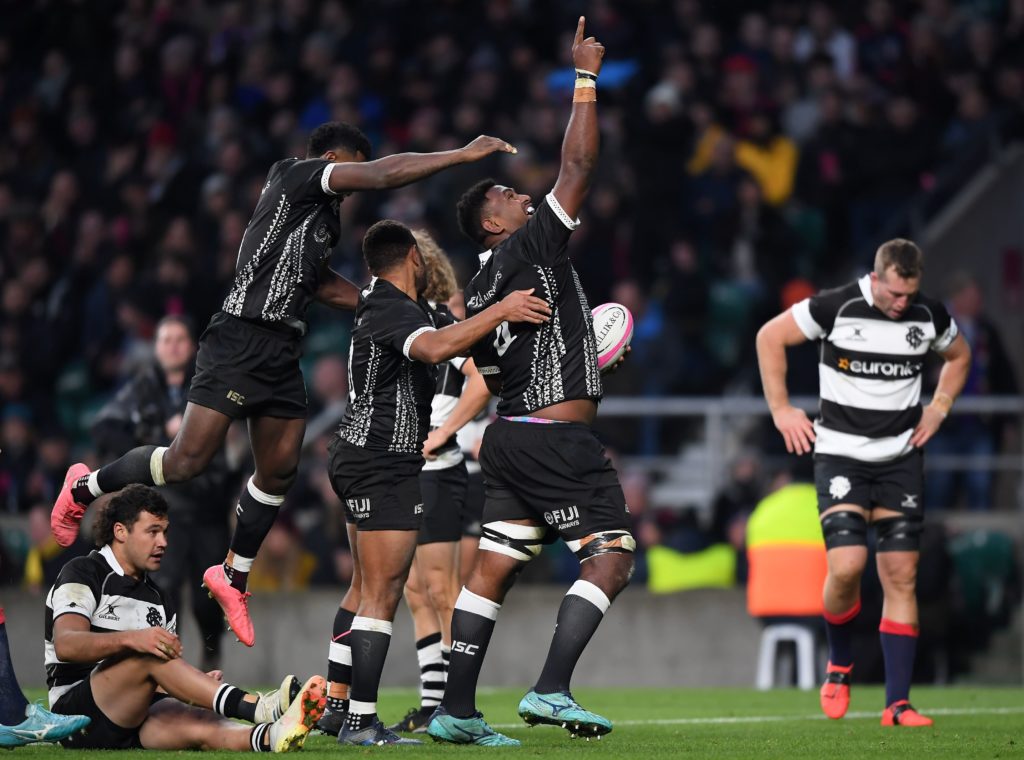
Three days later and 10,000 miles away, Fiji’s general manager of high performance Simon Raiwalui, the Wallabies’ forwards coach under Michael Cheika at the 2019 World Cup, bunkered down at an evacuation centre in Tavenui as Cyclone Yasa ripped through.
“The cyclone hit us around 6pm,” Raiwalui, now safe in Suva, tells The XV.
“It was pretty hectic, the cyclone. The biggest one I’ve ever been in. It was like having a 747 outside your window, but for six hours. Everything was roaring and things flying by; it was hectic.”
Earlier that day, without an ounce of trepidation, four locals were playing rugby on a field as the rain teemed down.
Eventually, Raiwalui relented and allowed his Fijian Academy players the chance to stretch their legs and join in as Yasa’s rage built on the Pacific to the north and the field resembled more of a lagoon than a training paddock.
“Wherever there’s a rugby ball, no matter the conditions, they’ll be out there.
Simon Raiwalui on Fiji’s natural inclination to rugby
“Those four kids, they weren’t meant to be playing rugby, they were nailing up shutters across the windows,” Raiwalui, who hasn’t seen his family in almost a year because of Covid-19, recalls.
“They found the ball and came out on the field, and just after that their father came out and chased them across the field because they were meant to be doing work.
“Wherever there’s a rugby ball, no matter the conditions, they’ll be out there.
“The last one, when it was really wet, that was literally two hours before the cyclone hit us and they were out there.
“We had to let our academy boys out because they were just like, ‘Can we go, can we go, can we go?’ because the kids were playing. We said, ‘OK, get out there, but as soon as we call you in you’ve got to come back in.’
“But you drive across Fiji, through the islands, and they’ll be playing rugby. Wherever you find a ball they’ll be playing on a beach, they’ll be on the grass, on the road; it’s part of the culture and that’s one of the benefits we have.”
The next morning, Raiwalui’s players helped clean up the devastated island. But once they had done all they could, they were back out playing.
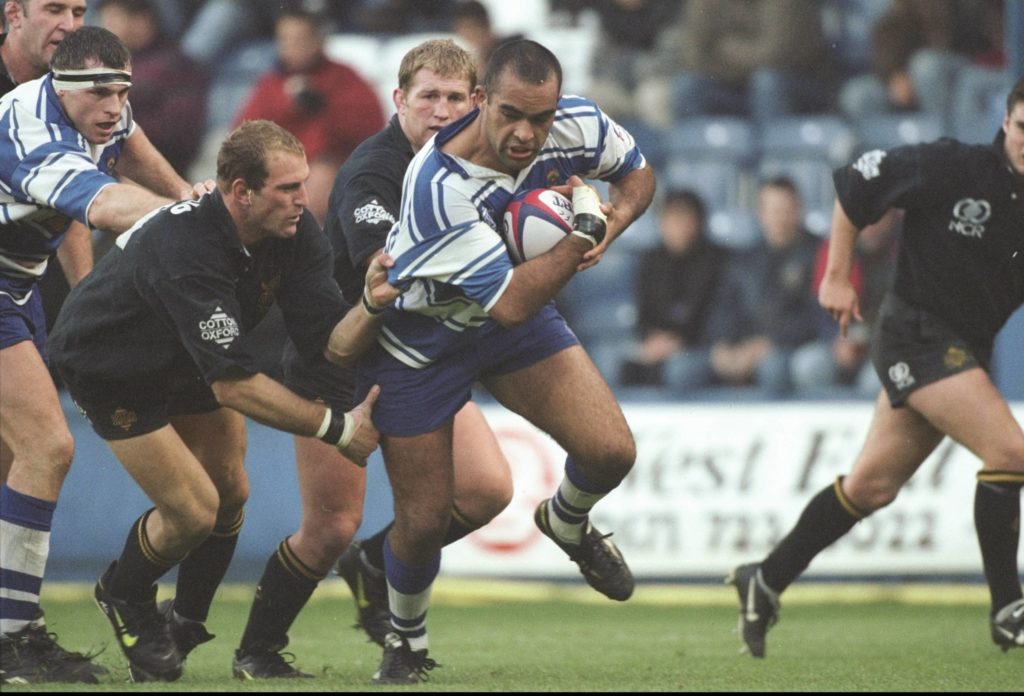
Two days later the group of young men squeezed into a dinghy back to Suva.
“Long way back in that boat to Suva,” Raiwalui quipped.
Raiwalui, a former Fijian captain who spent 21 years playing and coaching in Europe, was stuck in Tavenui for another three days because the jetty was destroyed by Yasa.
Despite making it back to the mainland for Christmas, Raiwalui has not been able to return to Australia to see his family. The Raiwaluis are hoping to see each other in late January or February.
All the while, Raiwalui continues to work, intent on turning Fiji’s abundance of talented stars into a rugby powerhouse.
“It’s been the thing that’s kept me sane, just being able to work,” Raiwalui says.
“One thing that Fiji’s never lacked is talent. Through the age groups and school, there’s talent there because everyone plays rugby and there’s a passion there for it. People are not looking at it as a job, our females play rugby in Fiji, so we’re very blessed in that way.
“It’s about managing and getting the structures in place and going in the right direction.”
One thing that Fiji’s never lacked is talent. Through the age groups and school, there’s talent there because everyone plays rugby and there’s a passion there for it.
When Jones singled out Fiji as a potential threat at the 2023 World Cup, he merely mentioned the “significant contributors” of the Fijians “to all the French club teams”.
He’s not wrong, with Semi Radradra, Josua Tuisova and Leone Nakarawa three of the biggest names to find their feet in the French Top 14.
But now Fiji has a world-class coaching structure, with former Scotland coach Vern Cotter, whose Scottish side came within a Craig Joubert penalty from knocking out the Wallabies in the quarter-finals of the 2015 World Cup, taking charge and respected assistants Daryl Gibson, Jason Ryan and Richie Gray joining him.
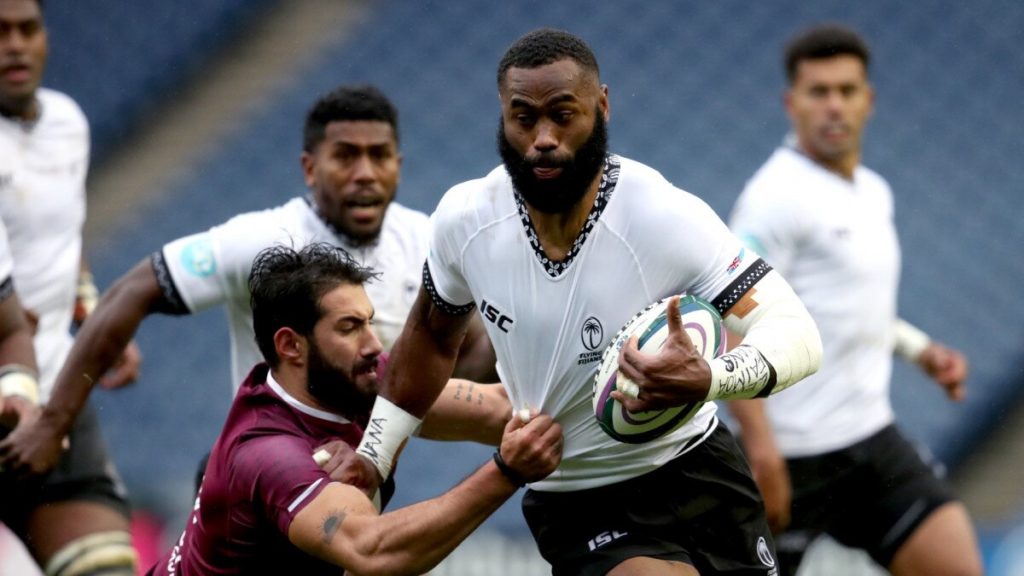
“We’ve got a good coaching staff with Vern Cotter, a coach with a lot of experience, he’s old school, no nonsense, that’s the sort of coach we need in Fiji, and the coaching staff underneath him are some of the best in the world,” Raiwalui said.
“We’ve very excited, we just need the opportunity to showcase that and get a really good build-up for Rugby World Cup 2023.”
Perhaps more importantly, the momentum behind Fiji joining an Australian-New Zealand trans-Tasman Super Rugby competition is at long last gathering steam.
“We have what many don’t, world class talent,” Raiwalui says.
“What we need is to be able to get a team like the Jaguares, that’s the next step, getting a Super Rugby franchise, a professional team based in Fiji so we can bring our best talent home and they can train and play together and get exposure at the highest level out of Fiji.
“There’s no hiding it, bringing a team together on a week’s notice from six-seven countries is difficult, so if we get that opportunity to have a Super Rugby team, a professional entity, playing out of Fiji, 40-50 players playing, training under the best tutelage in the world, being able to live at home, that’s when you’re going to see the biggest difference.
that’s the next step, getting a Super Rugby franchise, a professional team based in Fiji so we can bring our best talent home and they can train and play together and get exposure at the highest level out of Fiji.
“Hopefully that’s going to come in the near future, there’s been no promises, but we’re hopeful.
“We’ve had a letter of interest. We’ve got the talent. It’s about the financial part now. If we can get all our ducks in a row it could be a 2022 entry.”
In the meantime, Raiwalui has his eyes fixated on two projects.
The first is strengthening Fiji’s Achilles heel: the tight-five.
“They’ve made huge progress in the last cycle with Alan Muir and John McKee, they had a solid scrum, there’s always areas to improve, but Vern’s very aware of the challenges there and the development needed,” Raiwalui said.
“That’s part of my role as well, to get them ready for that level.
“I think Jason Ryan, our new forwards coach from the Crusaders, he’s excellent and has a real rapport and working relationship with the Fijians.
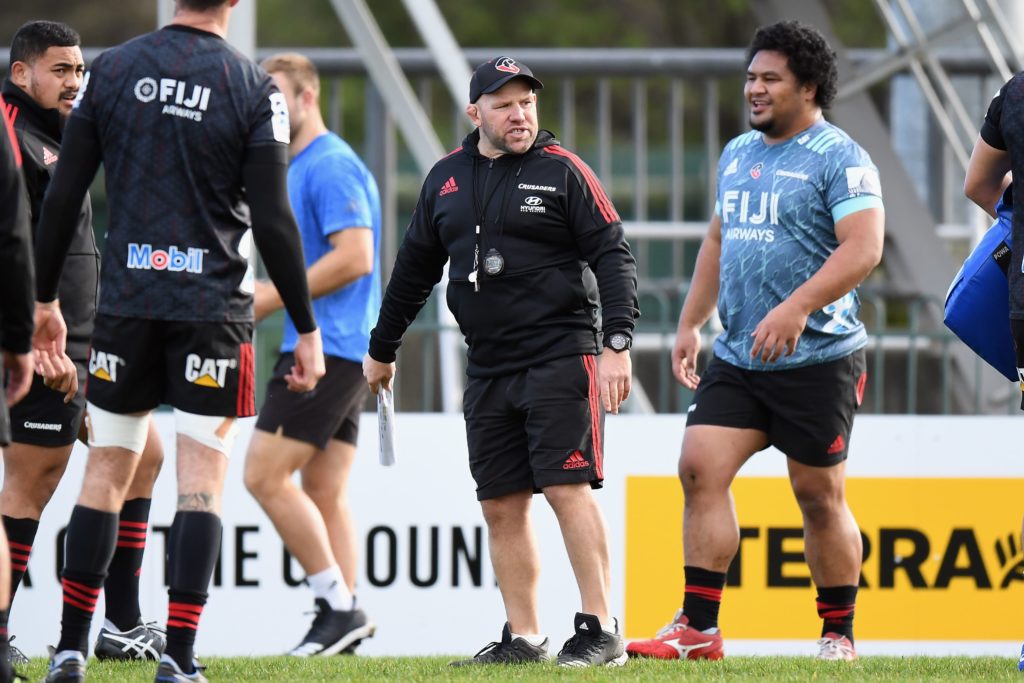
“We’re working on bringing in a national tight five curriculum, so that our tight five are doing extra work specifically on what they have to work on to become a world class tight five players.”
Raiwalui’s philosophy has also been guided by his time with the Wallabies, where he worked alongside head of national performance Dean Benton, who returned to Australia following a stint working under Jones’ England.
“What we want to do is to create the best possible athletes so they become the best possible players,” he said.
There’s been a very heavy concentration of players from the main two islands, we’re actually trying to get out to the smaller islands now because there’s a lot of talent out there that haven’t had the chance to shine.
“The biggest problem we have in Fiji is the facilities and being able to provide them the same things that are available in other countries. If we are able to create the best athlete possible in the tight five the world’s our oyster for Fiji because we’ve got the backs and backrowers, we’ve got quality tight five, we just have to get them in the best possible shape for international rugby.”
Additionally, Raiwalui is scouring the Fijian Islands hoping to unearth some of the world’s best talent.
“There’s been a very heavy concentration of players from the main two islands, we’re actually trying to get out to the smaller islands now because there’s a lot of talent out there that haven’t had the chance to shine,” he said.
“We’ve got some really good talent coming from the smaller islands now and we’re trying to harness that.”
If Raiwalui achieves that, it won’t just be the Wallabies on edge but the rest of the rugby world.
Rugby Australia helped Fiji complete their high performance coaching puzzle, with not just Raiwalui leaving but also former Waratahs coach Gibson, who many believe is a superior assistant than head coach, on board.
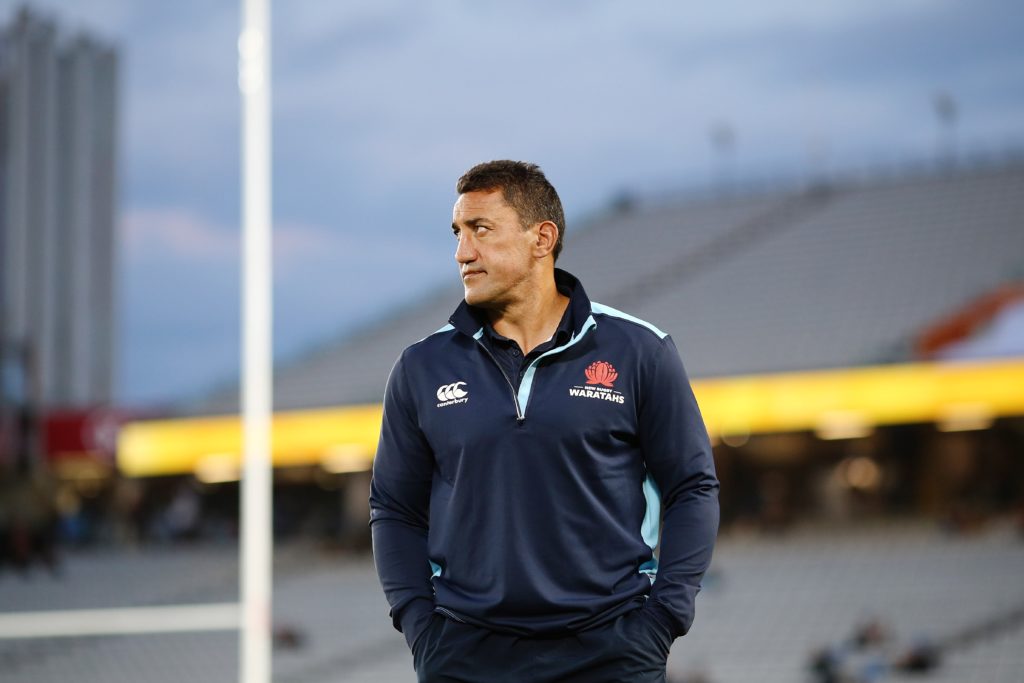
Despite the set-piece being one of the Wallabies’ better performing facets of their disappointing 2019 campaign in Japan, Raiwalui was left out in the lurch when Cheika chose not to seek re-appointment.
He wasn’t in Scott Johnson’s plans for the Wallabies and while a pathways role was talked about, it was not until the end of 2019 he was told he would not be required in 2020.
But Australian rugby’s loss was Fiji’s gain.
They will be blessed with another highly experienced and respected coach, who has a World Cup campaign behind him, when 2023 rolls around.
The rugby world might not have seen the Flying Fijians in full flight in 2019.
Indeed, as Jones said recently, “I don’t think we saw the best of Fiji at the last World Cup.”
But with Fiji getting their ducks in order off the field, the world, including Rennie’s Wallabies, are on notice now.



Comments
Join free and tell us what you really think!
Sign up for free